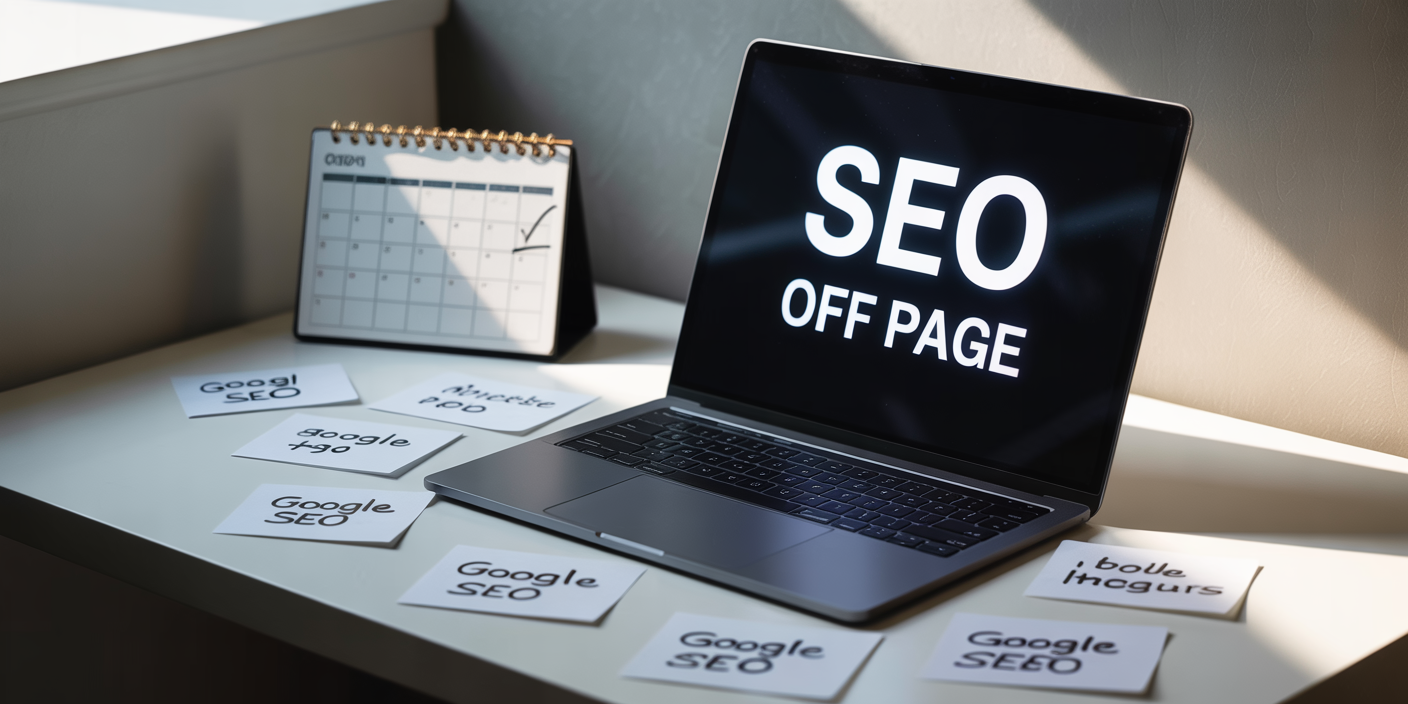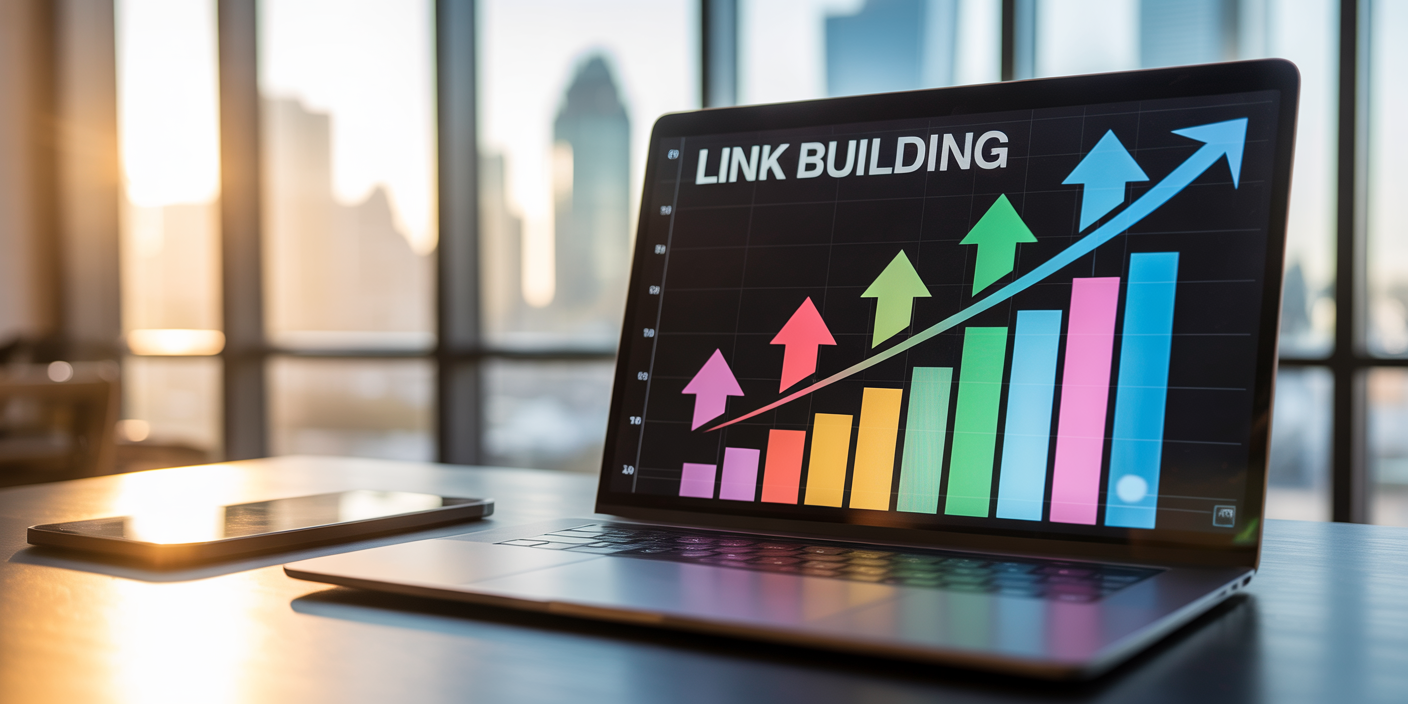SEO Off Page
1. What is off-page SEO and why it continues to cause confusion
When talking about off-page SEO, the first thing that comes to mind is one word: backlinks. And while this is part of the game, reducing all external SEO to "having many links" is like saying that to succeed in the kitchen you only need salt. Yes, it's important, but without technique and strategy you accomplish nothing.

Off-page SEO encompasses all actions outside your website that can influence your search engine rankings. This includes external links, yes, but also brand mentions, social signals, collaborations, and even your brand's online reputation.
The confusion usually comes because, for years, off-page SEO has been misinterpreted as "bombarding your webpage with random links". In my experience, there's nothing further from reality than that.
2. The truth about backlinks: quantity vs quality
It's very common to see agencies or freelancers promise "a thousand links per month". And sure, it sounds impressive... until you understand where those links come from. Many are from low-quality sites, artificial blog networks, or forums of dubious authority. That is, pure spam.
And the worst part is that they continue to be sold as if they were useful just for having a high Domain Rating (DR). The truth is that even if they're DR5 or DR50, if the content is poorly made, the domain has no real traffic, or it's a link farm, they can hurt more than help.
In my experience, real, quality links are expensive and can't be obtained by the thousands per month. They come from relationships, editorial collaborations, related media, or natural mentions. They are scarce by nature and therefore valuable.
3. Why off-page SEO is not the first thing you should do
One of the most common mistakes is starting with off-page SEO when the project doesn't even have a solid structure or well-crafted content. Off-page SEO is a final phase of the process, not the beginning.

First you do your keyword research, define your transactional architecture, produce optimized and useful content... and only afterwards, when you're already in positions 2 or 3, off-page SEO can help you give that final push.
Trying to rank a page with just links, without Google knowing what your content is really about, is like pushing a car without an engine. It's not going anywhere.
4. When and how to apply off-page SEO strategies intelligently
So, when is it worth using off-page SEO? When your page already has a solid foundation and is close to achieving the top 1. At that moment, a good link can make the difference. But be careful: it's not just any link.
It has to be a link from a website that adds value to the reader. That is, if you're selling sports shoes, having a link from a gardening blog won't move the needle. Instead, a mention in an article about "how to choose shoes for running marathons" in a specialized medium can have an impact.
The key is that each link must provide context, authority, and relevance. That's the formula that really works.
5. Strategic link building: not all links are worth the same
Here we enter the terrain of strategic link building. The difference between an SEO project that scales with stability and one that receives penalties lies in how each link is obtained. Forget automation. Instead of using tools that spit out thousands of links with exact anchor text, you have to think like humans:
- From which website would it be logical for them to link to me?
- Can I collaborate on a guest article?
- Do I have content good enough to be cited?

Link building is not mechanical, it's strategic and creative. And as I said before, it only makes sense when your website is ready to receive that external boost.
6. Types of links and how they impact your rankings
Not all links are created equal. Here are some types and how they affect your SEO:
Natural
These are links that other sites give you without you asking for them. They are the most valuable.
Manual outreach
Consists of asking for links through collaborations or guest content.
Self-creation
Links in forums, profiles, or comments. Useful to a small extent, but dangerous if you abuse them.
Dofollow
They transmit authority and are taken into account by Google.
Nofollow
They don't transmit direct authority, but diversify your profile and can generate traffic.
7. Social signals, brand mentions, and other effective external tactics
Off-page SEO is not just links. Brand mentions, even if they're not clickable links, also help position you in users' minds (and Google's).
The same happens with social signals. A brand active on social networks, with mentions, shares, and real engagement, has more chances of generating trust. And that's also part of Google's algorithm, even if it doesn't say so explicitly.
Digital public relations also play a key role. An article in an important medium, even without a link, generates traffic, branding, and improves your perceived authority.
8. Key metrics to evaluate the impact of off-page SEO
How do you know if your external actions are working? Here are some key metrics:
Domain Authority (DA/DR)
A quick reference, although it's not the only one.
Number of referring domains
More important than the total number of links.
Referral traffic
How much traffic comes to you from those links.
Thematic relevance
How related the website linking to you is to your niche.
Link profile growth rate
Natural growth is better than a suspicious spike.
These metrics will help you avoid penalties and maintain a clean and effective strategy.
9. Common off-page SEO mistakes you should avoid
Many projects fail in off-page SEO by repeating the same mistakes:
Buying cheap links in bulk
The classic mistake that can destroy your domain.
Repetitive exact anchor text
Google detects artificial patterns and penalizes.
Ignoring thematic relevance
If your links don't make sense, they don't help.
Not measuring results
Doing SEO without metrics is like navigating without a compass.
Starting without a solid foundation
As we already said, first you work on-page and content.
10. How to develop an off-page SEO strategy
Ideally, your strategy should have these stages:
1. Current state diagnosis
What is your authority? Where are your opportunities?
2. Clear objective
Which pages do you want to boost and why?
3. Competitor analysis
What links do they have that you don't?
4. Valuable content creation strategy
So it can be linked naturally.
5. Public relations and outreach
To get real links.
6. Constant monitoring
Review your link profile, traffic, and positions.
And always remember: off-page SEO is not a magic solution. It's the cherry on top, not the foundation. When applied at the right time, with the right techniques and a strategic vision, it can make the difference. But if applied badly, it not only doesn't help: it can ruin everything.
Ready to take your project to the next level?
Stop losing visibility. Request a free SEO audit and discover the real potential of your website.
